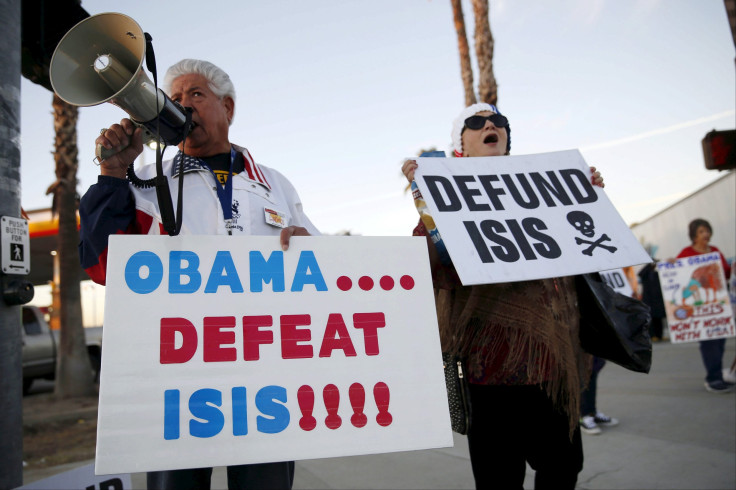Where Is ISIS Now? Islamic State Targets Include US, Spain, Belgium, and Dozens Of Other Nations

ISIS appears to be on the losing side of the war on terror. It's lost territory, recruitment is rumored to be down and the Iraqi and U.S. militarities are preparing to launch a campaign to retake Mosul, the capital of its so-called caliphate in Iraq. But the group continues to inspire supporters across the globe, fueling warnings about lone-wolf attacks that can be difficult for authorities to prevent.
"The West should have no illusion that the Islamic State will simply slump into defeat," Brian Michael Jenkins and Colin Clarke of the Rand Corporation, a think tank with close ties to the U.S. Air Force, recently wrote. "Instead, it must focus on thwarting the group's Plan B."
In the latest sign of the group's breadth and vulnerability, European authorities arrested Wednesday five people suspected of forming an "active and dangerous" Islamic State cell in Spain, Belgium and Germany. Four of the suspects were Spanish, while one was Moroccan, Reuters reported.
ISIS has lost an estimated 22 percent of its territory over the past year, but it still has eight global affiliates and continues to carry out deadly attacks, such as the airport bombing in Brussels that killed 32 people in March. The United States' most recent ISIS-related attack came earlier this month, when a Somali man who had pledged allegiance to the militant group stabbed nine people at a Minnesota mall. The Islamic State claimed responsibility for the attacker, 22-year-old Dahir A. Adan.
Other nations also face threats from ISIS. In all, ISIS supporters have overseen more than 143 attacks in 29 countries in recent months. At least 2,043 people were killed. The militant group has hit people in nearly every corner of the world in nations in Europe, Asia, Africa and North America.
In Europe, Spain has arrested 143 Islamist militants in recent months. At the same time, a pro-ISIS Facebook page called "Islam en Español" (Islam in Spanish), has amassed over 32,000 followers. In Germany, a 17-year old Afghan who called himself a "soldier of the Caliphate" stabbed passengers on a train in July, leaving five people wounded.
France has seen a series of ISIS-related attacks, including the November bombing that killed at least 130 people and wounded more than 350 others. The attackers targeted six locations across the city, including a soccer match and the Bataclan concert hall.
In the Middle East, roughly six million people continue to live within ISIS' territories, largely in Syria and Iraq. Turkey saw 44 people fatally shot during an attack in June at the Ataturk International Airport in Istanbul. The suspects were from Kyrgyzstan and Uzbekistan, and from the Dagestan region of Russia. ISIS claimed responsibility for the attack.
In Africa, Nigeria, Libya and Tunisia, among other nations, have reported ISIS activity in recent years. In Libya, a January 2015 attack on the luxury Corinthia Hotel in Tripoli, killed at least 10 people. Tunisia saw 23 people killed in a terrorist attack on the landmark Bardo Museum in Tunis in March 2015. Yemen experienced a suicide bombing at its Ras Abbas military camp, west of Aden, that killed nearly 20 soldiers in February. In Nigeria, the militant group Boko Haram has pleged allegiance to ISIS.
Canada experienced an ISIS attack in October 2014, when a Muslim convert killed a soldier in Ottawa and stormed the Canadian parliament. More recently, an Alberta teenager was arrested earlier this month while trying to leave Canada to join the Islamic State in Iraq and Syria.
World leaders can likely expect more threats and attacks from ISIS in the future, terrorism experts said. With U.S.-led airstrikes in Syria and Iraq continuing to fight back against ISIS, Abu Bakr al-Baghdadi, the group's leader, could soon be forced to go underground and direct attacks from a remote nation, such as Libya.
They would launch such actions "just to prove to their followers that they are a force to be reckoned with," Clarke said.
© Copyright IBTimes 2025. All rights reserved.






















